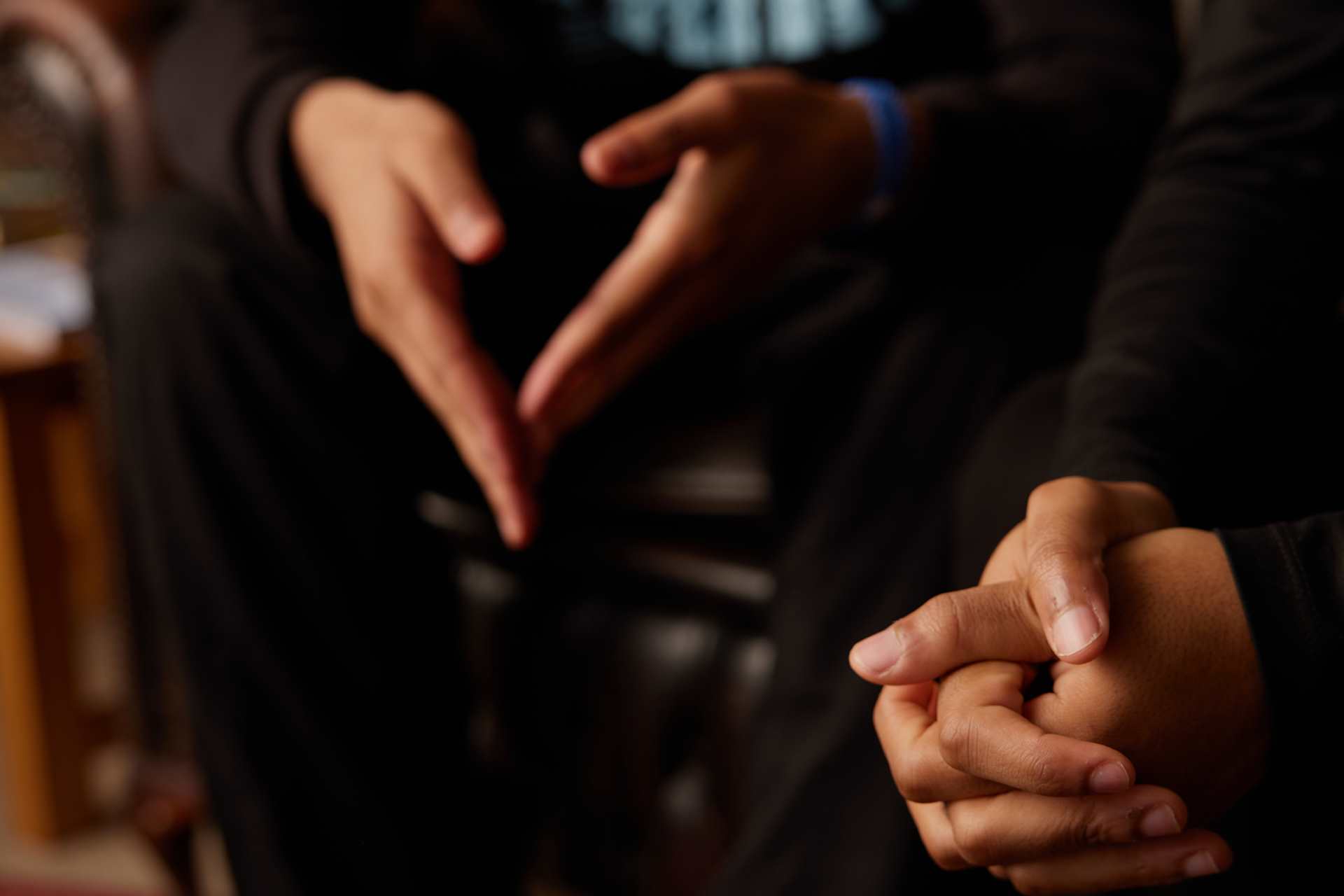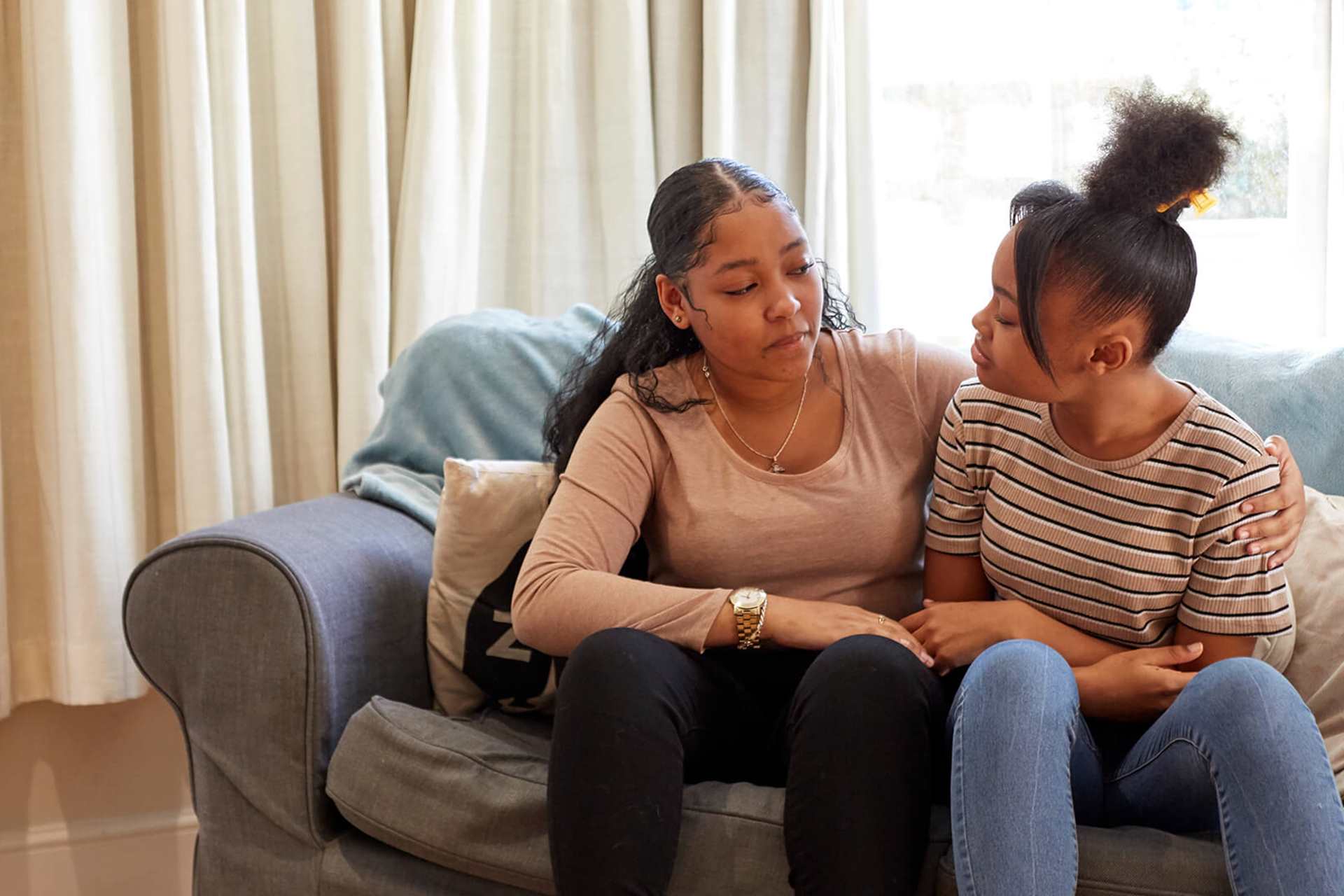Topics mentioned: hoarding, autism and mental health, ADHD and mental health, OCD, anxiety
About: Hoarding is when someone collects and keeps too many things, they can't manage the mess and find it hard or impossible to throw things away. It can have a big impact on your mental health and your day-to-day life.
Rachel, 25, describes her experience of hoarding as a neurodivergent person and offers tips for anyone else struggling with hoarding.
Hoarding is a horrible experience. It can also be hard to talk about.
I don’t get as scared speaking about my eating disorder, depression, OCD or neurodiversity but ‘admitting’ my hoarding has my muscles screaming at me to stop typing.
Hoarding is stigmatised. Cleanliness, neatness and organisation are social values that have been used and are still used to exclude neurodivergent, female, gender diverse, LGBTQ+ individuals, minoritised racial identities and people with disabilities. Tidiness is seen as something everyone should aim for and that everyone can do despite differences in time, brain processing or health conditions. As the mocking ‘documentaries’ of hoarding show, messiness is seen as being lazy and irresponsible.
The reality of hoarding is not so neat. I don’t choose or want to hoard – I hate it. It’s not a bad habit - it’s a sign of my emotional distress – a pain that I can’t share for fear of judgement.
Hoarding is stigmatised. Cleanliness, neatness and organisation are social values that have been used and are still used to exclude neurodivergent, female, gender diverse, LGBTQ+ individuals, minoritised racial identities and people with disabilities.
Hoarding is a coping mechanism for me which means it can be triggered when any of my conditions become overwhelming and is different each time. ADHD means my brain works differently and it takes more energy for me to recognise the consequences of not putting things away or to work out if I will need something again. When I am feeling low, I’m not being lazy, I just don’t have the energy.
If I am struggling with my eating disorder, I may start to hoard packets so I can check I didn’t ‘accidentally’ eat too much. At other times, it’s triggered by an ASD terror of growing up or change. Sometimes it’s OCD ‘magical thinking’ that throwing away an empty box might somehow result in someone dying. If I feel low, I can use it to punish myself as I know an untidy room will make me feel worse.
Other times I can’t tell why the thought of deleting my three SD cards of screenshots or deleting a spam email makes me shaky with panic. I spiral and feel powerless to stop.
Hoarding is a coping mechanism for me which means it can be triggered when any of my conditions become overwhelming and is different each time.
Stigma makes it hard to ask for help so I was scared to share my struggles with my mum.
My mum is naturally neat and efficient. She doesn’t get as attached to things as I do or worry about imaginary potential future uses of everyday items. Mess doesn’t make sense to her and so my hoarding looked like a frustrating problem.
This misunderstanding caused lots of arguments and upset when she would throw things out without telling me, refuse to let me do anything until I had tidied or make comments like ‘I don’t understand how you can live like this, it’s disgusting.’ I was scared that I would be made to throw things out before I was ready and I felt ashamed of letting her down. I tried to hide my mess, but the anxiety just made it worse.
Over time, I explained the emotions behind the hoarding and she can tell how it changes when I am stressed or low. She doesn’t let me hoard but we work together to help me manage it. We try to address the underlying anxiety but if this isn’t possible because of time or stress, we have some strategies to minimise it.
If you feel ready to think about ‘de-hoarding’ here are some suggestions:
-
Plan it
Hoarding can make you feel helpless; gentle ideas of where to start may make the task feel less impossible and lonely.
-
Pace it
Try to break it down into manageable targets. The items I hoarded were connected to painful memories. Uncovering these took its toll and my ASD need for completeness made me try and do it in one go which made me burn out.
-
Stage it
You don’t have to throw everything out straight away – you could try taking one item out each day or moving them out of your room first for a while or taking a photo.
-
Share it
Ask someone to do the actual throwing away for you if this feels too difficult.
-
Accept it
Don’t blame yourself – acknowledge the emotions that started the hoarding. It’s not a failure if it happens again.
-
Support it
Mum and I agree that if I bring things down she throws them out without asking me about it. This helps remove the guilt.
-
Credit it
It takes persistence and courage to tackle hoarding – go get a hug if you need one!
At 25, I sit on my floor surrounded by chaos. I feel ashamed, disgusting, selfish and wasteful when people have so little. I curse myself for ‘letting’ it get bad again. If you struggle with hoarding, you’re not alone and you are not to blame. It may not be visible to other people, but this is how you struggle and that should be recognised, not mocked or punished.
If you struggle with hoarding, you’re not alone and you are not to blame.
More information and advice
We have tips and advice to help you find the support you need. Take a look at our guides.
Where to get help
However you're feeling, there are people who can help you if you are struggling. Here are some services that can support you.
-
Childline
If you’re under 19 you can confidentially call, chat online or email about any problem big or small.
Sign up for a free Childline locker (real name or email address not needed) to use their free 1-2-1 counsellor chat and email support service.
Can provide a BSL interpreter if you are deaf or hearing-impaired.
Hosts online message boards where you can share your experiences, have fun and get support from other young people in similar situations.
- Opening times:
- 24/7
-
Samaritans
Whatever you're going through, you can contact the Samaritans for support. N.B. This is a listening service and does not offer advice or intervention.
- Opening times:
- 24/7
-
CALM (Campaign Against Living Miserably)
Provides support to anyone aged 16+ who is feeling down and needs to talk or find information.
Free webchat service available.
Read information about the helpline and how it works.
- Opening times:
- 5pm - midnight, 365 days a year






